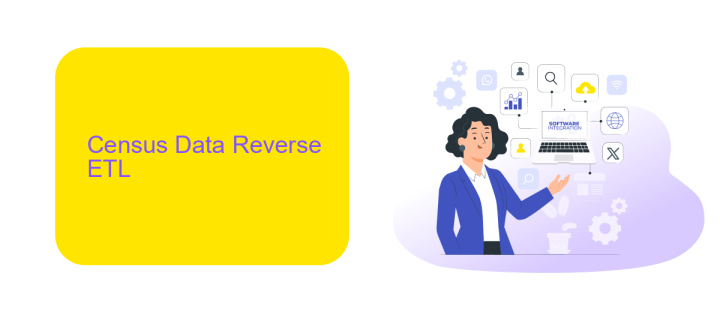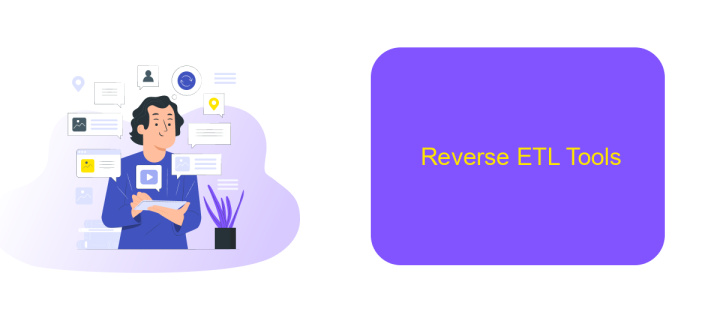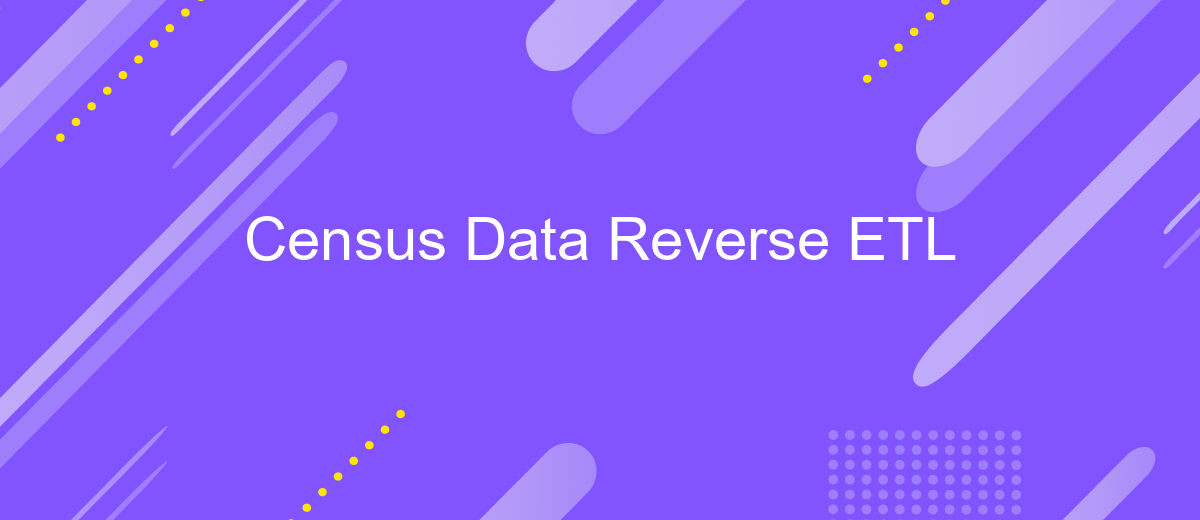Census Data Reverse ETL
Reverse ETL (Extract, Transform, Load) is revolutionizing how businesses leverage census data. By enabling the seamless transfer of data from data warehouses back into operational systems, companies can enhance decision-making, streamline operations, and personalize customer experiences. This article explores the transformative potential of Reverse ETL in maximizing the value of census data across various industries.
Introduction
Census Data Reverse ETL is a process that involves extracting, transforming, and loading data from a data warehouse back into operational systems. This technique is essential for businesses aiming to leverage their data for real-time decision-making and operational efficiency.
- Extract: Retrieve data from a central data warehouse.
- Transform: Convert the data into a usable format.
- Load: Integrate the transformed data into operational systems.
By utilizing tools such as ApiX-Drive, businesses can streamline the integration process, ensuring seamless data flow between systems. ApiX-Drive offers a user-friendly interface and robust functionality, making it easier to set up and manage integrations without the need for extensive technical expertise. This enhances the ability to act on data insights promptly, driving better business outcomes.
Census Data Reverse ETL

Reverse ETL is a process that involves extracting data from data warehouses and operational databases and then loading it into various business applications. This approach enables organizations to make better use of their data by integrating it into tools used for customer relationship management (CRM), marketing automation, and other business operations. By doing so, businesses can enhance decision-making processes, streamline operations, and improve customer experiences.
One of the services that facilitate Reverse ETL is ApiX-Drive. ApiX-Drive allows users to set up integrations without any coding skills, making it easier to transfer data between systems. With ApiX-Drive, businesses can automate data flows from their data warehouses to various applications, ensuring that the latest data is always available where it's needed most. This not only saves time but also reduces the risk of errors associated with manual data entry, thereby improving overall data accuracy and reliability.
Benefits of Reverse ETL

Reverse ETL offers numerous advantages for organizations looking to leverage their data effectively. By transforming data from data warehouses back into operational systems, businesses can make more informed decisions and streamline their workflows.
- Improved Decision-Making: Access to real-time data enables better strategic planning and operational efficiency.
- Enhanced Customer Experiences: Personalized interactions become possible with updated customer data in CRM systems.
- Operational Efficiency: Automating data flows reduces manual tasks and minimizes errors.
- Seamless Integration: Tools like ApiX-Drive simplify the integration process, ensuring smooth data transfers between systems.
By implementing Reverse ETL, companies can ensure that their data is not just stored but actively used to drive business outcomes. Services like ApiX-Drive facilitate these integrations, making it easier to synchronize data across various platforms without extensive technical expertise. This ultimately leads to a more agile and data-driven organization.
Reverse ETL Tools

Reverse ETL tools are essential for transforming and syncing data from your data warehouse back into operational systems. These tools enable businesses to operationalize their data by making it accessible in the tools where teams work daily. This process ensures that insights derived from data analysis are actionable in real-time.
One of the key benefits of using Reverse ETL tools is the ability to automate data workflows, reducing the need for manual data handling and minimizing errors. These tools support seamless integration with various platforms, making it easier to sync data across multiple systems.
- ApiX-Drive: A versatile tool that facilitates integration between different platforms, enabling automated data workflows.
- Hightouch: Allows for easy data syncing from your warehouse to various business tools.
- RudderStack: Provides a robust solution for transforming and routing data to different destinations.
By leveraging these Reverse ETL tools, companies can ensure that their data is not just stored but actively used to drive business decisions and improve operational efficiency. These tools play a crucial role in bridging the gap between data analytics and actionable business insights.


Conclusion
In conclusion, leveraging Census Data Reverse ETL can significantly enhance the quality and accessibility of data across various business functions. By transforming census data into actionable insights, organizations can make more informed decisions and optimize their operations. This process not only bridges the gap between data collection and practical application but also ensures that data is consistently updated and relevant.
For those looking to streamline their integration processes, services like ApiX-Drive offer invaluable support. By automating data transfers and ensuring seamless connectivity between different platforms, ApiX-Drive simplifies the complex task of data integration, making it easier for businesses to harness the full potential of their census data. Embracing such tools can lead to improved efficiency, reduced manual effort, and ultimately, a more data-driven approach to decision-making.
FAQ
What is Census Data Reverse ETL?
Why is Reverse ETL important for businesses?
What are the common challenges with implementing Reverse ETL?
How can I automate and integrate Reverse ETL processes?
What types of data can be transferred using Reverse ETL?
Apix-Drive will help optimize business processes, save you from a lot of routine tasks and unnecessary costs for automation, attracting additional specialists. Try setting up a free test connection with ApiX-Drive and see for yourself. Now you have to think about where to invest the freed time and money!

